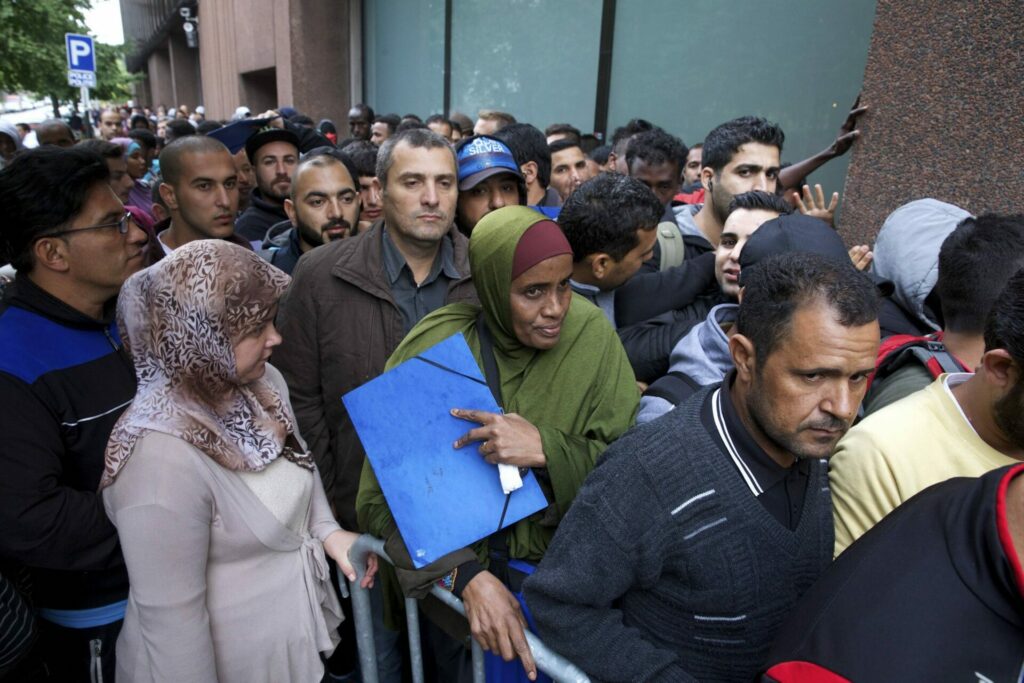More than half of Flemish voters (55%) believe that being born in Flanders is a prerequisite to identifying as “truly” Belgian or Flemish, according to a survey of around 2,000 residents conducted by the University of Antwerp and the VUB.
In other words, newcomers to Belgium cannot be considered truly Flemish, no matter how hard they try. But despite this strict distinction between those who were born here and those who were not, the survey revealed that assimilation remains an important issue for Flemish voters.
76% of respondents believe that non-Western immigrants should adopt Belgian customs and culture as much as possible. This view is held commonly among the voters of most of the largest parties within Flanders, both on the right and left.
A shared perspective
Unsurprisingly, voters further to the right of the political spectrum are the most strident in their beliefs. However, members of far-left parties also hold tightly to these convictions.
True to the name, 90% of Flemish Interest (Vlaams Belang) voters believe that new arrivals should make an effort to integrate with local lifestyle and culture. On the left, 65% of socialist Workers’ Party of Belgium voters also hold this view.
Compared to previous surveys, the results indicate that parties on the political left are gradually adopting a harder stance on integration. Perhaps the most integral element of Flemish heritage is the language. 81% of respondents stated that Dutch was a “crucial” condition for successful integration.
66% of those surveyed believed that access to Belgian nationality should be made “somewhat more difficult.” This belief is most fervently supported by right-wing Vlaams Belang and NVA voters.
What does it mean to be Belgian?
A majority of Flanders residents want tighter controls on migration. On both the left and right, voters largely believe that Belgium should not receive more refugees than it does currently. Only 30% of respondents stated that Belgium should take in more refugees.
Right-wing parties Vlaams Belang and NVA were most forthright about this topic, but also some parties on the left, such as Vooruit. This was particularly evident when the socialist party leader Conner Rousseau courted controversy by stating that the Brussels neighbourhood of Molenbeek – home to a large Middle Eastern contingent – "does not feel like Belgium."
Related News
- Flemish people willing to fly and drive less, but not eat less meat
- Half of Flanders residents favour switching off Russian gas, even if it costs more
Asylum applications have, in fact, dropped since 2018 – currently at 11,297 compared to 2018's 11,510. However, most voters (57%) believe that asylum applications are actually on the rise. 78% of Vlaams Belang voters believe this to be true.
This could be explained by a softening of the sense of Belgian national identity. Only 44% of Flemish feel that they are “as Flemish as they are Belgian." 10% now say that they are exclusively Flemish, up 3% from 2007.
Most in favour of anti-racist policies
Despite an appetite for getting tougher on migration and a sense that "Belgian identity" is waning, the majority of voters are in favour of increasing workplace inspections to fight discrimination in recruitment.
Almost half of complaints brought forward to the regional anti-discrimination office Actiris Inclusive pertained to racism in 2020.
A majority of Vlaams Belang and NVA voters are in favour of increased anti-racism inspections.
And though the public still generally agree with the need to create new asylum centres within Belgium, voters on the right were more willing to support to refugees from their “own religion” (notably from Ukraine) as opposed to those from Syria or Afghanistan.

